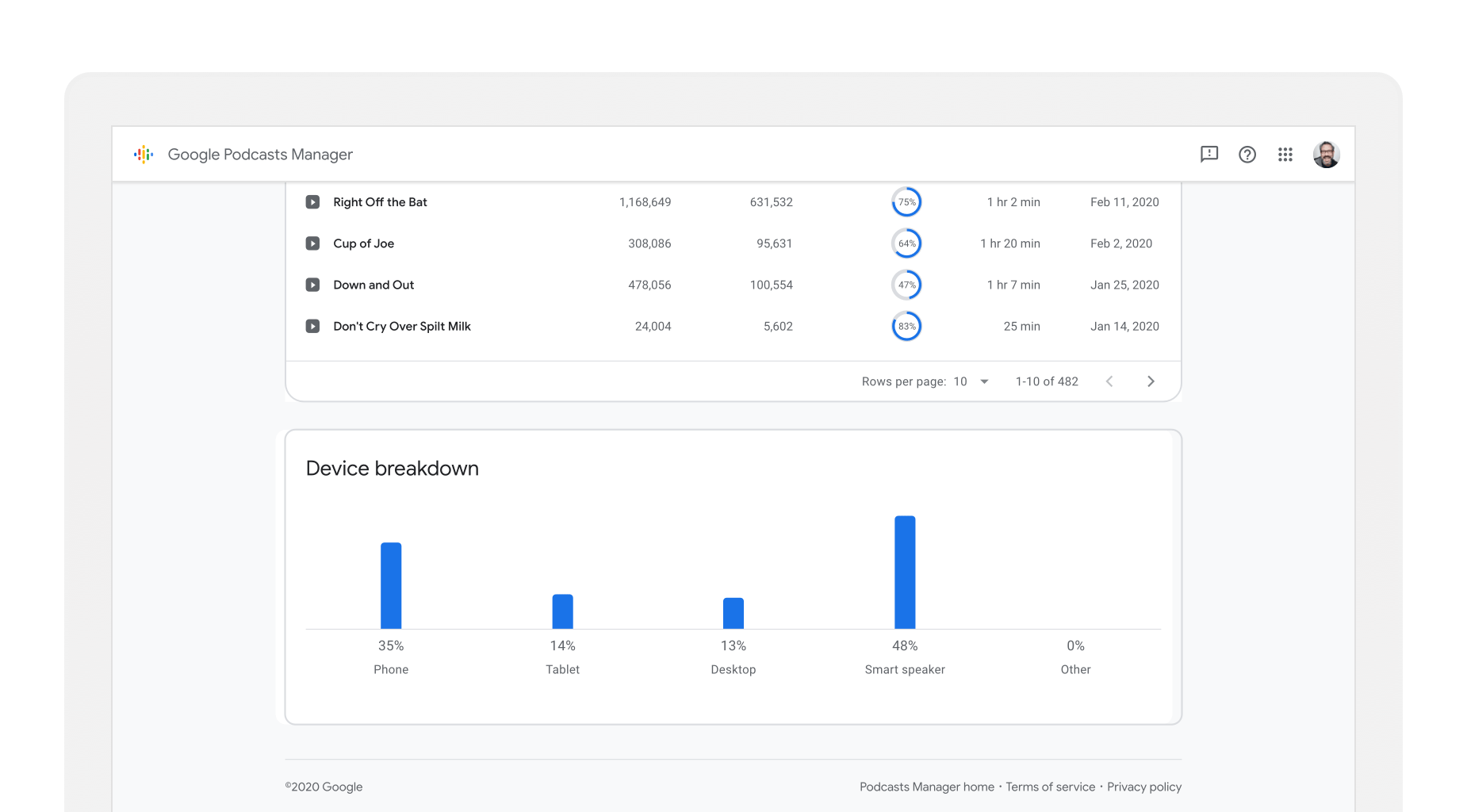Javier Saade serves on several boards, is venture partner at Fenway Summer and is a senior advisor at FS Vector, Fenway Summer’s advisory affiliate. Previously, he was associate administrator and chief of investment and innovation at SBA.
More posts by this contributor
The last two decades have ushered in significant change and transformation. I believe the 2020s will be dispositive in redefining the pillars of our economy, and COVID-19 magnifies this greatly. As of this writing there are 3,611,394 confirmed cases, and the U.S. accounts for 33% of those. We are now dealing with a 4.8% Q1 GDP contraction and expectations for Q2’s shrinking runs into the 25% range, more than 30 million unemployed and a $7 trillion federal intervention — in a span of six weeks.
Eric Schmidt recently predicted that the coronavirus pandemic is strengthening big tech. It is hard to disagree with him; it almost feels obvious. Big tech and other digital companies are net beneficiaries of new habits and behaviors. Some of this shift will be permanent, and well-capitalized tech companies are likely to expand their power by grabbing talent and buying companies for their IP — then dissolving them.
With power comes political backlash and public wariness. One flavor of that counter pressure is already in full effect. Sen. Elizabeth Warren and Rep. Alexandria Ocasio-Cortez have proposed new legislation that seeks to curtail acquisition activity via the Pandemic Anti-Monopoly Act. I’ll reserve judgment on their effort, but the theme is familiar: the strong get stronger and the weak get weaker, which further widens gaps and calcifies disparity.
The COVID-19 shock is highlighting a chasm that has evolved over decades. The digital divide, lack of capital access, sporadic paths to education and microscopic levels of wealth accumulation in communities of color and the implicit/explicit bias against non-coastal “elites” are some contributing factors.
During the 2008 crisis, the combined value of the five biggest companies — ExxonMobil, General Electric, Microsoft, AT&T and Procter & Gamble — was $1.6 trillion. Microsoft is worth almost that today — all by itself. No need to talk about FAANG, because since the pandemic’s economic halt, Peloton downloads went up five-fold in a month, Zoom grew to 200 million users from 10 million in December and Instacart users grew six times in that period.
Roelof Botha of Sequoia Capital was recently quoted as saying, “Like the killing off of the dinosaurs, this reorders who gets to survive in the new era. It is the shock that accelerates the future that Silicon Valley has been building.” It is hard to argue with his views.
To be clear, I am a beneficiary of and a big believer in technology. Throughout my career I have managed it, invested in it and made policy on it. For example, one of the multi-billion-dollar programs I oversaw, the Small Business Innovation Research (SBIR) program, has invested more than $50 billion in tens of thousands of startups, which have collectively issued 70,000 patents and raised hundreds of billions of capital — and 700 of them have gone public, including tech titans such as Qualcomm, Biogen and Symantec.
My point: I think about technology a lot, and, lately, about its repercussions. There is a massive shift afoot where more power and influence will be consolidated by these remarkable companies and their technology. Besides the economic consequences of the strong crushing the weak, there are serious ethical issues to consider as a society. Chamath Palihapitiya has been pretty vocal about the moral hazard of what is essentially a massive transfer of wealth and income. On one side you have mismanaged and/or myopic corporations and on the other, the counterparty is the American people and the money we need to print to bankroll the lifeline. I am not talking about Main Street here, by the way.
It is not hard to imagine a world in which tech alone reigns supreme. The ethical dilemmas of this are vast. A recent documentary, “Do You Trust this Computer,” put a spotlight on a frantic Elon Musk ringing the alarm bell on machines’ potential to destroy humanity. Stephen Hawking argued that while artificial intelligence could provide society with outsized benefits, it also has the potential to spiral out of control and end the human race. Bill Gates has been less fatalistic, but is also in the camp of those concerned with synthetic intelligence. In an interesting parallel, Bill has for years been very vocal on the risks pandemics pose and our lack of preparedness for them — indeed.
These three men have had a big impact on the world with and because of technology. Their deep concern is rooted in the fact that once the genie is out of the bottle, it will make and grant wishes to itself without regard to humanity. But, is this doomsday thinking? I don’t know. What I do know is that I am not alone thinking about this. With COVID-19 as a backdrop, many people are.
Algorithmic sophistication and computer horsepower continue to evolve by leaps and bounds, and serious capital continues to be invested on these fronts. The number of transistors per chip has increased from thousands in the 1950s to over four billion today. A one-atom transistor is the physical boundary of Moore’s Law. Increasing the amount of information conveyed per unit, say with quantum computing, is the most realistic possibility of extending Moore’s Law, and with it the march toward intelligent machines and a tech first world. The march has been accelerated, even if peripherally, by the pandemic.
While the promise of technology-driven progress is massive, there are some serious societal costs to exponential discovery and unleashed capability acceleration. Dartmouth’s Dr. James Moor, a notable thinker at the intersection of ethics and technology, believes that the use and development of technologies are most important when technologies have transformative effects on societies. He stipulates that as the impact of technology grows, the volume and complexity of ethical issues surrounding it increases. This is not only because more people are touched by these innovations, they are. It is because transformative technology increases pathways of action that outstrip governance systems and ethical constructs to tame it.
So what? The twists and turns of technology application lead to consequences, sometimes unknowable — and for that reason we should be increasingly vigilant. Did Zuckerberg ever imagine that his invention would have been so central to the outcome of the 2016 election? Unknowable consequences, exhibit one. Interconnected systems touch every aspect of society, from digital terrorism to bioengineering to brain hacking and neural cryonics to swarm warfare, digital assets, intelligent weapons, trillions of IoT connected devices — the list goes on.
As a society, we should be open to innovation and the benefits it ushers in. At the same time, we must also remain committed to sustainable tech development and a deployment mechanism that does not fail to shine a light on human dignity, economic inequality and broad inclusiveness. These seem like esoteric issues, but they are not, and they are being put to the test by COVID-19.
A fresh example of this thematic happened recently: Tim Bray, a VP and engineer at Amazon’s AWS, resigned because of the company’s treatment of employees, and was quoted as saying, in part, “…Amazon treats the humans in the warehouses as fungible units of pick-and-pack potential. Only that’s not just Amazon, it’s how 21st-century capitalism is done… If we don’t like certain things Amazon is doing, we need to put legal guardrails in place to stop those things.”
Eliminating human agency has been at the core of innovation during the last four decades. Less human intervention in a call center, a hedge fund trading desk, a factory, a checkout line or a motor vehicle seems fine — but in cases of greater importance, humans should remain more active or we will, at best, make ourselves irrelevant. In the past, labor displacement has been temporary, but it seems to me that the next wave is likely to be different in terms of the permanence of labor allocation, and big tech getting bigger will likely hasten this.
Innovative capability has been at the center of progress and living standard improvements since we harnessed fire. The world’s technology portfolio is an exciting one, but potentially terrifying to those who could be more hampered by it, such as the front-line workers on Main Street shouldering the health and economic brunt of the coronavirus.
Years ago, Peter Drucker pointed out that technology has transformed from servant to master throughout our history. Regarding the assembly line, he noted that “it does not use the strengths of the human being but, instead, subordinated human strengths to the requirements of the machine.”
In my opinion, Drucker’s quote is at the very core of our point in time, happening on a scale and speed that is hard to fathom and changing the digital divide amongst us into a digital canyon between us and technology.





